Why I Transferred to UC Berkeley
Shortly after applying to, and being accepted by, almost all of the schools in the University of California (UC) system, it was time to make a huge decision - which school would I choose to go to?! Some of you reading might already know just by the name of the author of this blog post that I ended up deciding to attend UC Berkeley, and in this post, I want to share with you my reasons why.
No. 1 Public University
So one of the top reasons, which I’m sure is a hotly debated topic, is that UC Berkeley has historically ranked at the national number one public university in the United States, and the fourth-best overall according to the QS World University Ranking. While a school’s rankings are not necessarily indicative of the quality of education one might receive, what was important for me when considering this ranking was the quality of the faculty that I would be working with in the Anthropology department, which leads me to my next point.
Faculty
Building off of that, one of the things that makes UC Berkeley such a great school is it’s faculty. On a statistics and flashy numbers basis, UC Berkeley is home to 8 current Nobel Prize winners, and has been home to 29 nobel prize winners in total. The faculty at Cal is world renowned, well known for their fields of study, and at the forefront of important research that, at this exact moment in time, has been working to understand the current pandemic and contribute to vaccine and epidemiology research. When it comes to the details instead of the general reasons why I chose Cal, the faculty members in the Anthro department are people that, after doing my research, I really wanted to be able to connect with and learn from — especially since some of them specialize in the area of archaeology that I am interested in going into!
Breadth of Education
The next thing that I wanted to point out was that Cal encourages a breadth of education. If you come in as a freshman, you’re supposed to follow certain requirements designed to ensure that you receive a breadth of classes and education — a mission which extends into transfer education requirements as well! As a transfer student I of course have to take courses that count towards my degree, but as an anthropology major, we are still required to take upper division courses from the 4 branches of anthropology as well as courses outside of our major. While students get relatively free reign in our choice of electives, the structure allows for one to gain a breadth of knowledge while also having the option of focusing on one area in particular. As an anthropology major, holistic approaches to education are very important to me, so the requirements for this degree at UC Berkeley were really appealing to me!
Location & Historic Campus
Let’s talk about… location. LOCATION LOCATION LOCATION!! This is something that I think ALL prospective students think about, whether you’re a freshman or a transfer student, location and campus can definitely be determining factors. Now, of course the pandemic did throw some wrenches into my plans, but before that was something to consider, location was definitely one of the BIG reasons why I chose UC Berkeley. Geographic location is really important to me for a couple of reasons. Firstly, I have chronically ill family members to care for, as well as a significant other that live in the Sacramento area (about an hour east of Berkeley). Choosing Berkeley meant that I could come home easily, without spending hundreds of dollars and hours on plane rides and long road trips up and down I-5. Not to mention that the Bay Area is beautiful! UC Berkeley has an incredible campus, a beautiful botanical garden, the weather, while not attractive to some, is exactly the kind of weather that I LOVE, and UC Berkeley is just a 20 minute train right away from San Francisco and many other great bay area cities.
Lastly, I have to mention the historic features of Cal’s campus. This campus is the oldest and first university in California (coincidentally it is also the first university west of the Mississippi), which is where it’s nickname “Cal” comes from! This campus was not built all at the same time, which means that as the campus expanded starting in 1868, each new building was unique, carrying with it its own history. I also have to say that not only is the campus old, but it has historically been at the forefront of important research, and what it is most well known for - political justice and change. UC Berkeley has seen many protests, most famously the free speech protests in the 1960’s, which you can learn more about at this link here. This campus doesn’t just stop there, but it makes it a point to make social justice and social issues part of its education, and focuses much of the curriculum on discussing these issues, with actionable plans to help make change as an undergraduate student.
Access to Research
Next let’s talk a little bit about research since I mentioned that in my last point, UC Berkeley is a research institution, which means that the faculty are always performing research and studying ideas and innovating cutting-edge science and technology. But, they wouldn’t be able to do this without the help of the undergraduate research program at UC Berkeley. This program, called the Undergraduate Research Apprenticeship Program (URAP) allows undergraduate students, even transfer students, to engage closely with graduate students and faculty mentors who provide technical training and mentorship. Their website says, “as an apprentice, you can work on faculty research and learn advanced research skills, explore fields that interest you, and find out what it is like to be an academic at the world's premier research institution”. Essentially, UC Berkeley makes it really easy and appealing for undergraduates to participate in research. At Cal, you can work one on one with faculty, participate in cutting edge research projects, make significant contributions to a field you care about, and enhance your competitiveness for high level employment AND graduate admissions after graduation. The ease of research accessibility was a huge contributing factor that made me choose UC Berkeley over the other UC’s that I got into.
Support for Transfer Students
As an incoming transfer student, I was quite frankly overwhelmed by the amount of support that UC Berkeley offers to transfer students, and also re-entry/25+ students, which I am. They have a very well established Transfer Center, which is apparently the first transfer center in the country (and just celebrated their 20th year). The Transfer Center offers various support services including tutoring, mentor programs, financial aid/scholarships, webinars, and they even have housing that is specifically designed for transfer students in order to house transfer students together to build community! As classes are resuming in the fall, I am so excited to finally get to step foot in the transfer student center and study surrounded by my transfer community!
Financial Aid
Obviously, with tuition as expensive as it is in the United States, financial aid was a major factor in my decision to attend Berkeley. UC Berkeley dedicates a lot of its financial resources towards providing financial aid for students. In fact, nearly two-thirds of Berkeley undergraduates receive some form of financial aid, and 60% of undergraduate students who graduated in the years of 2017 and 2018 graduated ENTIRELY LOAN DEBT FREE!! And even if a student graduated with loan debt, the average loan debt was 18,225, which is 10,000 less than the national average. Cal was the school that I received the most financial aid from, and although the cost of living in the bay area are high, I believe that cost is offset by the experiential aspect of living in a new city and being able to take advantage of all that campus will have to offer as we return to in-person classes next semester.
My Major— Anthropology
So as I mentioned earlier, my major is Anthropology, meaning the study of humans. Anthropology is a very broad discipline, in fact there are 4 different branches of anthropology (Biological, cultural, archaeology and linguistics), and then many more sub-disciplines within those. However, despite that fact, UC Berkeley manages to rank in the top 4 anthropology programs in the United States. As I said earlier in this blog post, the faculty of the anthropology department is another reason why I wanted to study here . Many of them are forerunners in anthropological and archaeological thought and research. The courses that Cal offers gives me access to rigorous methodology courses and advanced technology, and many of the faculty specialize in what I think is going to be my geographic area of interest when it comes to archaeology — Mesoamerica. This gives me the opportunity to receive a renowned anthropological education, and make connections with people who are active in the areas of anthropology that I am currently interested in. Additionally, I chose to go to a school with a general Anthropology program over a specific archaeology degree, because I wanted to be able to pivot and utilize my degree for more than archaeology if I choose to do so in the future. Again, the connections that I am making with the faculty at this school in conjunction with my anthropological background will be imperative to my future academic success in terms of graduate school and beyond.
Since actually moving to Berkeley and getting to experience the campus and the city in a way that I could not before making this decision, I am comfortable in saying that I made the absolute right decision for me. I think that most students who get to choose between multiple schools will always feel a little bit of FOMO for the schools that they won’t get to experience, but all of that is outweighed by the amazing experience that going to Berkeley has been so far. I could probably go on and on about all the reasons why I chose Cal, and I didn’t even get into the whole “it felt magical when I walked onto campus” part, but trust me that’s part of it too.
If you are a high school or transfer student trying to decide what school to go to, definitely consider the pros, cons, costs, location and all of that (maybe even check out this other blog post I wrote about choosing the right transfer school for you), but also remember to listen to your gut, what you really want to do and what feels right. I’m sure I could have picked some other school over Cal and been fine, but there is just that something about Cal that feels right to me, makes me feel at home, and hopefully you end up finding that feeling too when it comes to choosing your transfer school.







